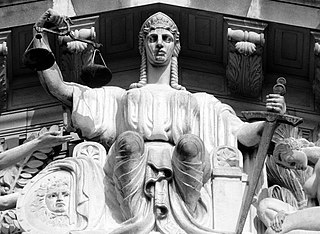Tesco Stores Ltd v Dundee City Council was a case before the Supreme Court of the United Kingdom in 2012.
Tesco Stores Ltd v Dundee City Council was a case before the Supreme Court of the United Kingdom in 2012.
Tesco, a supermarket company had, in 2010, sought a judicial review of Dundee City Council's grant of planning permission to Asda, another supermarket company, on site within 800m of one of Tesco's own stores. The Court of Sessions, both the Outer House and the Inner House had refused leave. [1] [2] Tesco claimed that the council had failed to properly apply the sequential test.
Tesco appealed to the Supreme Court.
Tesco said that where there was a dispute over meaning of a policy in the development plan it was for courts to determine the meaning. A planning authority attaching meaning to words they were capable of bearing, made an error of law. [3]
| | This section needs expansion. You can help by adding to it. (November 2016) |
The court agreed that the meaning of words was a matter for courts, while reiterating that policy statements should not be read as statutory or contractual wording would, and decisions were subject to planning judgement. The exercise of planning judgement could only be challenged on the grounds that it was irrational or perverse.
An error in interpretation would only be material if there was a reasonable chance that it would have affected the outcome. The court was not convinced that this was the case.
The court dismissed the appeal.
R (Zurich Assurance Ltd t/a Threadneedle Property Investments) v North Lincolnshire Council [2012] EWHC 3708 (Admin), Hickinbottom J cited, at Para 61, both Reed (Para 24 including "the question remains… whether an alternative site is suitable for the proposed development, not whether the proposed development can be altered or reduced so that it can be made to fit an alternative site" and Hope (Para 38 including "the issue of suitability is directed to the developer's proposals, not some alternative scheme which might be suggested" and "these criteria are designed for use in the real world"), in terms of understanding "suitability" in NPPF, a planning policy framework akin to the SPP considered by the Supreme Court. [4]

Tesco PLC is a British multinational groceries and general merchandise retailer headquartered in Welwyn Garden City, England. In 2011 it was the third-largest retailer in the world measured by gross revenues and the ninth-largest in the world measured by revenues. It has shops in Ireland, the United Kingdom, the Czech Republic, Hungary and Slovakia. It is the market leader of groceries in the UK.
Tesco Ireland is the Irish subsidiary of supermarket group Tesco. Tesco Ireland was formed by Tesco plc's 1997 purchase of the Irish retailing operations of Associated British Foods, namely Powers' Supermarkets Limited and its subsidiaries, trading as "Quinnsworth" and "Crazy Prices". There are 152 Tesco stores in operation in Ireland as of August 2018. Tesco had approximately 21% of the Irish grocery market in 2019 and its main competitors are Dunnes Stores and SuperValu.
Pith and substance is a legal doctrine in Canadian constitutional interpretation used to determine under which head of power a given piece of legislation falls. The doctrine is primarily used when a law is challenged on the basis that one level of government has encroached upon the exclusive jurisdiction of another level of government.

William Low was a chain of supermarkets based in Dundee, Scotland, until it was bought out by Tesco for £257M in 1994.

Delgamuukw v British Columbia, [1997] 3 SCR 1010, also known as Delgamuukw v The Queen, Delgamuukw-Gisday’wa, or simply Delgamuukw, is a ruling by the Supreme Court of Canada that contains its first comprehensive account of Aboriginal title in Canada. The Gitxsan and Wet’suwet’en peoples claimed Aboriginal title and jurisdiction over 58,000 square kilometers in northwest British Columbia. The plaintiffs lost the case at trial, but the Supreme Court of Canada allowed the appeal in part and ordered a new trial because of deficiencies relating to the pleadings and treatment of evidence. In this decision, the Court went on to describe the "nature and scope" of the protection given to Aboriginal title under section 35 of the Constitution Act, 1982, defined how a claimant can prove Aboriginal title, and clarified how the justification test from R v Sparrow applies when Aboriginal title is infringed. The decision is also important for its treatment of oral testimony as evidence of historic occupation.

Kingston Park is a suburb of Newcastle upon Tyne, about 4 miles (6 km) north west of the city centre.

The Kirkby Project was a proposed new football stadium in Kirkby, England for Everton. The stadium, if built, would have replaced Goodison Park as Everton's home ground. The plan originated in 2006, was the subject of a Public Inquiry in December 2008, but was eventually rejected by central government in November 2009. The stadium had a planned all-seated capacity of 50,401 with a provision to be expanded to 60,000.

Criticism has been directed at Tesco from various groups, including national organisations, trade bodies, individuals, consumer groups and watchdogs, particularly since the early 2000s.

United Kingdom administrative law is part of UK constitutional law that is designed through judicial review to hold executive power and public bodies accountable under the law. A person can apply to the High Court to challenge a public body's decision if they have a "sufficient interest", within three months of the grounds of the cause of action becoming known. By contrast, claims against public bodies in tort or contract are usually limited by the Limitation Act 1980 to a period of 6 years. Almost any public body, or private bodies exercising public functions, can be the target of judicial review, including a government department, a local council, any Minister, the Prime Minister, or any other body that is created by law. The only public body whose decisions cannot be reviewed is Parliament, when it passes an Act. Otherwise, a claimant can argue that a public body's decision was unlawful in five main types of case: (1) it exceeded the lawful power of the body, used its power for an improper purpose, or acted unreasonably, (2) it violated a legitimate expectation, (3) failed to exercise relevant and independent judgement, (4) exhibited bias or a conflict of interest, or failed to give a fair hearing, and (5) violated a human right. As a remedy, a claimant can ask for the public body's decisions to be declared void and quashed, or it could ask for an order to make the body do something, or prevent the body from acting unlawfully. A court may also declare the parties' rights and duties, give an injunction, or compensation could also be payable in tort or contract.

Administrative law in Singapore is a branch of public law that is concerned with the control of governmental powers as exercised through its various administrative agencies. Administrative law requires administrators – ministers, civil servants and public authorities – to act fairly, reasonably and in accordance with the law. Singapore administrative law is largely based on English administrative law, which the nation inherited at independence in 1965.

Illegality is one of the three broad headings of judicial review of administrative action in Singapore, the others being irrationality and procedural impropriety. To avoid acting illegally, an administrative body or public authority must correctly understand the law regulating its power to act and to make decisions, and give effect to it.

Exclusion of judicial review has been attempted by the Parliament of Singapore to protect the exercise of executive power. Typically, this has been done though the insertion of finality or total ouster clauses into Acts of Parliament, or by wording powers conferred by Acts on decision-makers subjectively. Finality clauses are generally viewed restrictively by courts in the United Kingdom. The courts there have taken the view that such clauses are, subject to some exceptions, not effective in denying or restricting the extent to which the courts are able to exercise judicial review. In contrast, Singapore cases suggest that ouster clauses cannot prevent the High Court from exercising supervisory jurisdiction over the exercise of executive power where authorities have committed jurisdictional errors of law, but are effective against non-jurisdictional errors of law.

Rainy Sky SA and others v Kookmin Bank is an English contract law case concerning interpretation of contracts. The Supreme Court confirmed the principle laid down in Wickman v Schuler that, if the words of a contract have ambiguous meanings, the court will interpret it in a manner that most accords with "business common sense". There is no requirement for a party to prove that the alternative interpretation is entirely unreasonable.

The National Planning Policy Framework (NPPF) is a land-use planning policy in the United Kingdom. It was originally published by the UK's Department of Communities and Local Government in March 2012, consolidating over two dozen previously issued documents called Planning Policy Statements (PPS) and Planning Policy Guidance Notes (PPG) for use in England. It has since been revised in 2018, 2019 and 2021.
The failure of a public authority to take into account relevant considerations and the taking of irrelevant ones into account are grounds of judicial review in Singapore administrative law. They are regarded as forms of illegality.

An ouster clause or privative clause is, in countries with common law legal systems, a clause or provision included in a piece of legislation by a legislative body to exclude judicial review of acts and decisions of the executive by stripping the courts of their supervisory judicial function. According to the doctrine of the separation of powers, one of the important functions of the judiciary is to keep the executive in check by ensuring that its acts comply with the law, including, where applicable, the constitution. Ouster clauses prevent courts from carrying out this function, but may be justified on the ground that they preserve the powers of the executive and promote the finality of its acts and decisions.
The Anti Monopoly Law of China is the People's Republic of China's major legal statute on the subject of competition law. It was passed by the National People’s Congress in 2007 and came into effect on 1 August 2008.

R v Wolverhampton CC [2010] UKSC 20 is an English public law case involving invalid considerations of a local council in making a compulsory purchase order. Judicial review was available and upheld in this case on one or more of four available grounds, namely: error of law, irrationality, serious procedural irregularity, and action for an improper purpose.

Fawcett Properties Ltd v Buckingham County Council [1960] has become a leading case in planning law and concerned agricultural conditions of use. It is also relevant for its tests on finding certainty versus uncertainty of policy, contract or other concepts rendering them void. It has been applied in English trusts law which has long held a cy-près doctrine, expressed in pre 1649-Law French meaning "there nearly" that is perfecting concepts or a purpose for funds which is tantamount to a legitimate interest or concern and intended to take clear effect.

Nevsun Resources Ltd v Araya, 2020 SCC 5 is a landmark case in which the Supreme Court of Canada held, in a 5–4 decision, that a private corporation may be liable under Canadian law for breaches of customary international law committed in other countries.